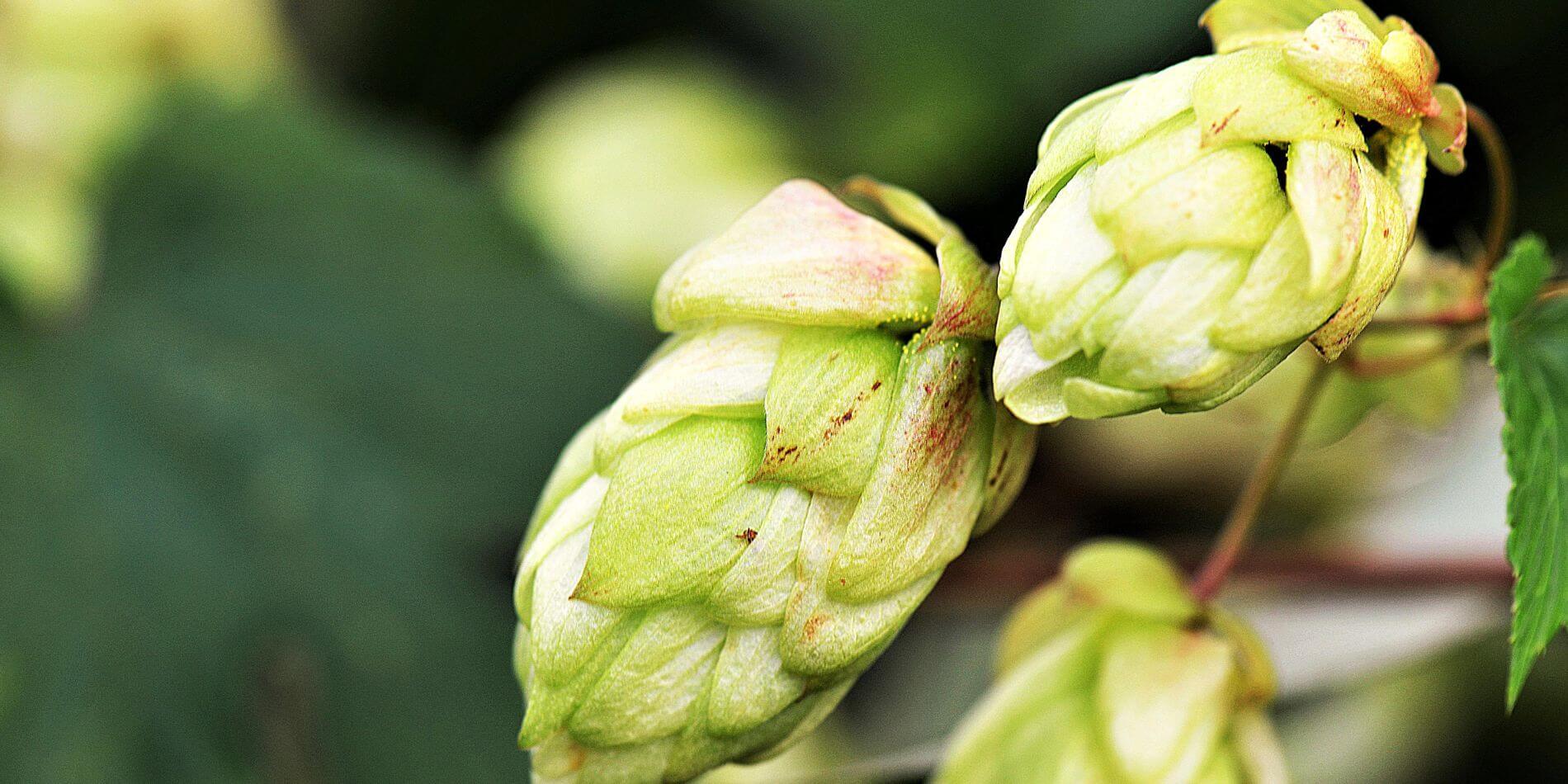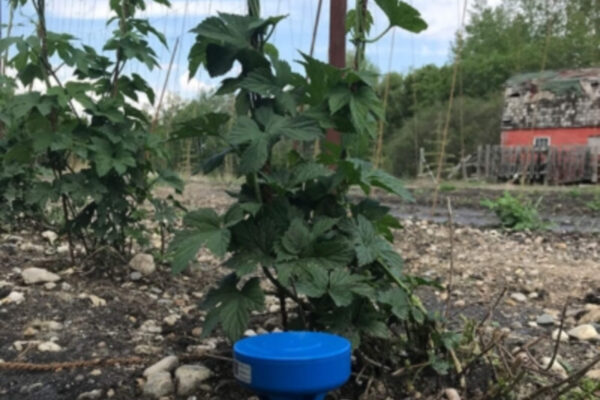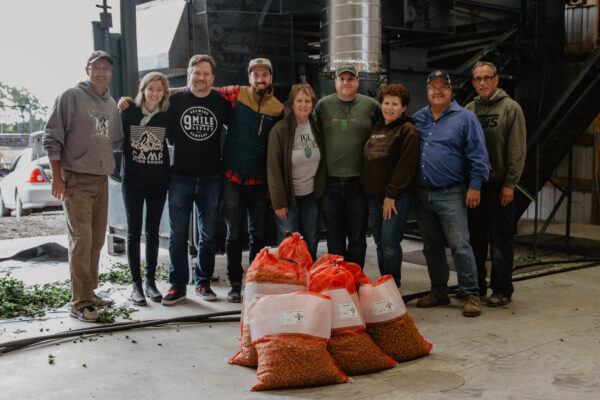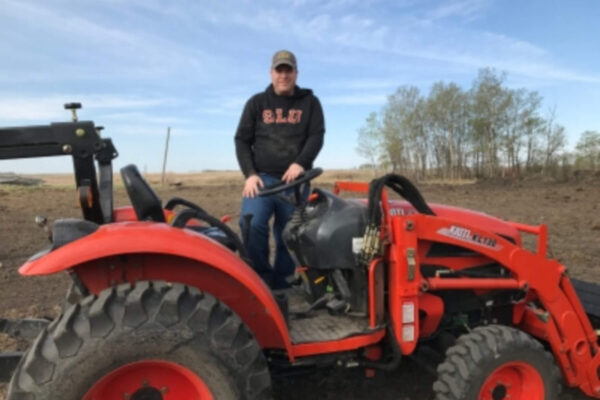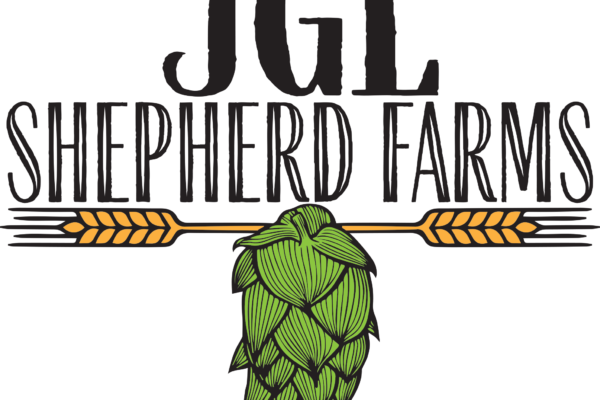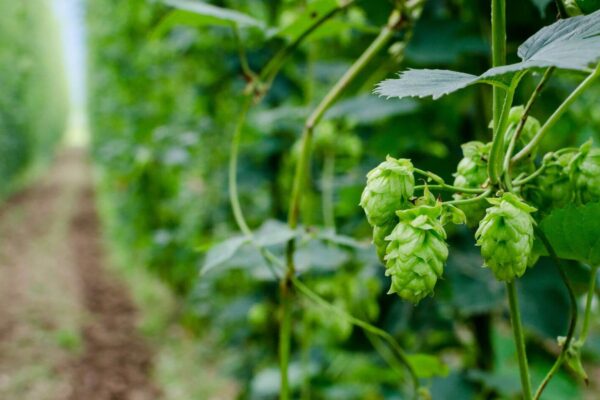How a Saskatchewan hop grower saw a 300% more yield than expected in extended drought conditions
Craft brewing is a fast-growing market in Canada, and the demand for locally sourced ingredients, a key driver in maintaining beer quality. In the case of JGL Shepherd Farms – a hops farm in Western Canada – where with the help of Sensoterra soil moisture data to drive irrigation decisions, and saw an increase in crop yield of 3-4 times what was expected in the face of an enduring summer drought.
Consumers are becoming more aware of the importance of consuming locally. Sourcing local goods has its benefits – it shortens the supply chain, reduces the carbon footprint from transportation, as well as promotes community empowerment. As part of this resurgence of local production for local consumption, the online social tag #DrinkLocal is a growing initiative to foster local beer production, sourcing local ingredients.
And you can’t have beer without hops. The rise of craft beer breweries demanding local ingredients to express their regional character and personality is a growing trend seen across North America. In Canada alone, the number of craft breweries nearly doubled over the last five years, representing 95% of all Canadian breweries.
Pioneering Western Canada
The rise of Canadian craft beer directly influences the decisions some growers take in order to supply local industry demand. However, to become an established hops grower in Canada is taking a leap into the unknown and relies heavily on the experience of pioneers like JGL Shepherd Farms, the biggest hop grower in Western Canada (Saskatchewan, Canada), at the helm.
“Hops are a unique and different crop”
The family-run farm of 1600 acres grows a variety of crops known in the area, such as canola and wheat, but has recently transitioned to hops cultivation. Already, it is one of the largest hop farms in Western Canada. Justin Shepherd, co-owner and operator, comes from a long line of growers, and he runs the farm together with his father Guy, and mother Lori.
Being first to market has its advantages; it also comes with its own set of challenges. “Hops are unique and different. To be a pioneer in hop growth in Western Canada and to establish yourself as the biggest grower in the region imposes the challenge of facing the ‘never explored before’ zone,” explains Shepherd. It’s that never explored territory where support and experience prove invaluable.
Unconventional methods
Unable to rely on conventional methods, Shepherd turned to crop consultants specialized in the typical row crops grown in the area. But without experience in hops, even they didn’t know how to best advise the uncharted territory of growing hops in Saskatchewan. This is when Shepherd took matters into his own hands.
“It was a learning experience,” he explained, so when he decided to rip up the field to install a subsurface drip irrigation system for a 1.3-acre pilot field, “no one had done it before for hops, but in theory, this system would last longer, and save money.”
With a background in agronomy and business, Shepherd is familiar with precision ag techniques to support the decisions made on the farm; relying on it to observe soil patterns, learn from mistakes, and turn those learnings into viable decisions. “Hops are a unique and different crop,” explains Shepherd, “To be a pioneer demands fast learning about the functionality of new things, with no previous references to guide you.” This meant bringing in new technologies like the Sensoterra wireless soil moisture sensors, to provide hourly data to support irrigation decisions in the field.
“We have to use reliable sources when dealing with soil moisture measurement and Sensoterra is the exact component relevant to my crop,” – Justin Shepherd, JGL Shepherd Farms
Sensoterra is a leader in soil moisture measurement powered by the Internet of Things (IoT) technology and LoRa connectivity which allow sensors to be completely wireless and provide hourly soil moisture data. The sensors measure the volumetric moisture percentage of the soil, with data measured at the active root zone and suitable for all soil types.
“Sensoterra probes allow growers to understand soil moisture behavior at the root zone. You start to understand the plant patterns such as seasonal changes, daily moisture, growth sequence,” says Shepherd.
The 2018 summer drought
And it was with the summer drought of 2018, where that data proved invaluable. “Last summer we suffered from a period of 8 weeks without rain,” said Shepherd. In Canada’s Western provinces, home to more than 80% of Canada’s agricultural land, temperatures rose to the low 40 degrees Celsius (100+ degrees Fahrenheit) and saw little to no rain for weeks on end. Without the use of wireless soil moisture probes, growers would be in the field daily walking the rows taking manual soil moisture readings – costing valuable time, with the pressure of defining critical irrigation moments.
“Sensoterra probes gave me the data so I knew exactly when to irrigate.”
One of the biggest challenges facing growers in Western Canada is the difficulty for water storage combined with limited amounts of available groundwater, under changing climate conditions. Drier and warmer weather influences irrigation patterns as well as exposes crops to operational risks. Measuring soil moisture conditions becomes essential to avoid under- and over-irrigation.
More hop, per drop
In the face of drought, Shepherd claims that “yield was 3-4 times more than expected for drought conditions” and attributes it to the data that Sensoterra sensors provided to help him make the call on when to irrigate.
With the rapid increase of IoT technology in agricultural fields, and precision agriculture techniques, Shepherd believes the promising future of LoRa is essential for the future of Ag Tech. “Growers who adopt IoT technology and Sensoterra will be successful by their ability to innovate and to learn how to make it work,” says Shepherd, “I’m excited to see the future of IoT, LoRa, and soil moisture probes. Their potential to work with high-tech efficiency will add great values for farmers who make use of it.”
With this season’s plans for expansion, JGL Shepherd Farm’s hops are sure to be found across Saskatchewan craft breweries.
About JGL Shepherd Farms
JGL Shepherd Farms is the 4th generation family farm with the goal of enabling all Saskatchewan brewers to brew beer with 100% locally grown ingredients. To learn more about JGL Shepherd Farm, visit www.jglshepherdfarms.ca
About Sensoterra
Sensoterra is a pioneering leader in the field of wireless soil moisture sensors, offering cutting-edge IoT soil moisture sensor solutions for smart agriculture. Our state-of-the-art Sensoterra soil moisture sensors are at the forefront of agriculture IoT, providing unparalleled soil moisture monitoring capabilities.
Our commitment to precision agriculture technology allows farmers to make informed decisions, optimize their irrigation systems, and embrace sustainable farming solutions. With Sensoterra, access to real-time soil moisture data is at your fingertips, enabling precise water management and water resource management for your agricultural operations.
Sensoterra, established in 2015, with its headquarters in Houten, The Netherlands, develops water management solutions for agriculture/horticulture, smart city management, and water governance. Sensoterra has over 12,000 sensors in the ground globally, and generates hundreds of thousands of data points for smart water management, daily. Learn more at www.sensoterra.com
Contact for more information, pictures and/or interview requests:
Jessica Nuboer
Marketing & Communications
Sensoterra
Email: [email protected]

